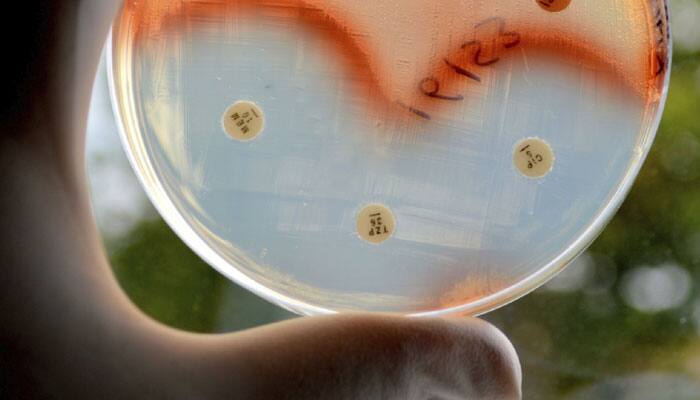New Delhi: Amid looming threat of an increase in deadly superbugs, researchers claimed to have found an effective combination therapy to treat the world's worst infectious diseases caused by the bacteria that are resistant to all known antibiotics.
The breakthrough they believe has the potential to change medical practice for the treatment of drug resistant infections.
"We looked for compounds that would mess with these bacteria, and I think we are nailing it," said Eric Brown, a professor at McMaster University in Canada.
For the study, the team focused on Gram-negative bacteria which are resistant to all antibiotics including last resort drugs, such as colistin, and lead to pneumonia, wound or surgical site and bloodstream infections, as well as meningitis in healthcare settings.
Gram-negative bacteria have an intrinsically impenetrable outer shell that is a barrier to many otherwise effective antibiotics, and this makes these infections deadly, particularly in hospital settings.
Researchers tested a collection of 1,440 off-patent drugs in search of one that might compromise that barrier in the superbugs.
"These pathogens are really hard nuts to crack, but we found a molecule that shreds that shell and allows antibiotics to enter and be effective," said Brown.
The scientists discovered that the antiprotozoal drug pentamidine disrupts the cell surface of Gram-negative bacteria, even the most resistant.
The anti-fungal medication was particularly potent when used with antibiotics against multidrug resistant bacteria.
According to scientists, pentamidine, when used with other antibiotics, was found to be particularly effective against two of the three pathogens which the WHO has identified as having the most critical priority for development of new antibiotics.
The two pathogens are acinetobacter baumannii and the enterobacteriaceae - both of which can cause serious infections in the lungs (like pneumonia), blood and brain, as well as urinary tracts and wound infections.
The combo therapy also had some impact on the third most critical bacteria, Pseudomonas aeruginosa.
The discovery was found to be effective in the lab and in mice, but more work is needed to offset potential side effects and ensure human safety.
"One of the things we want to pursue further is why this is working so well," said Brown.
Earlier last week on February 27, 2017, the World Health Organisation (WHO) published its first ever list of antibiotic-resistant 'priority pathogens' - a catalogue of 12 families of bacteria that pose the greatest threat to human health.
The findings have been published in the journal Nature Microbiology.
(With PTI inputs)
















